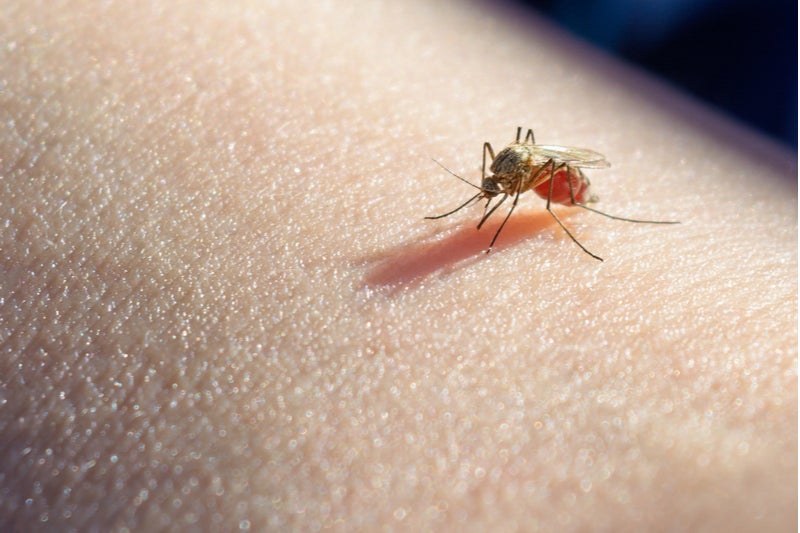A recent outbreak of eastern equine encephalitis (EEE) in several US states, causing nine deaths to date, led to drastic public health interventions. In Massachusetts, several counties started aerial spraying of insecticides to control mosquito populations, and local health agencies recommended the use of insect repellent and cancelling outdoor activities from dusk to dawn.
EEE is an arbovirus — a virus that is transmitted by insects and ticks — found in the northeast of the US, along the Great Lakes, as well as on the Gulf coast. Its life cycle usually involves freshwater avian hosts and a mosquito species (Culiseta melanura) that does not bite humans, but once enough birds carry the virus, it can spill over to other mosquito genera like Culex that can then transmit the virus to humans.
EEE infections are usually mild with flu-like symptoms, but in about 20% of cases, the virus can affect the brain and cause encephalitis, which is fatal in one-third of the cases and leaves survivors with lasting side effects and mild to severe brain damage. The CDC reported only 72 human EEE cases from 2009–2018, on average seven cases per year, but this year has already seen 28 EEE cases, most of them in Massachusetts (11) and Michigan (8). This is particularly worrying since the mosquito season lasts until temperatures drop below freezing.
EEE is the virus with the highest fatality rate of all arboviruses that occur in the US. Culex is also the host for the West Nile virus (WNV) that causes West Nile fever (WNF), the leading cause of mosquito-borne disease in the continental US. To date, no treatment or vaccine against either EEE or WNF exists. An EEE vaccine is being developed by the US military, and the National Institute of Allergy and Infectious Diseases (NIAID) is conducting a Phase I clinical trial for a trivalent vaccine against Western, Eastern, and Venezuelan equine encephalitis. Also for WNV infections, of which hundreds of cases occur each year in the US, no vaccine exists, but according to GlobalData’s proprietary drug database, several products are in early clinical trials, like Hawaii Biotech’s HBV-002 and Najit Technologies’ HydroVax-001. Furthermore, Imutex is developing the multivalent vaccine AGS-v against several Flaviviruses, including Zika, Dengue, and yellow fever viruses, with WNV currently in Phase I/II.
These viral infections share very low case numbers and/or predominant occurrence in developing countries, so biopharma companies shy away from costly vaccine development with little hope to see a significant return on their investment. Also, Sanofi’s continuing issues with its dengue virus vaccine Dengvaxia in the Philippines serve as a cautionary tale for emerging infectious disease vaccine development. Experts interviewed by GlobalData pointed out the urgent need for more research funding on the basic biology of these viruses to detect and contain the diseases these vectors spread. For diseases like EEE and WNF, that often means nonprofit organizations like the Gates Foundation or government agencies like NIAID must get involved when the commercial interest of pharma companies is absent.
Related Reports

US Tariffs are shifting - will you react or anticipate?
Don’t let policy changes catch you off guard. Stay proactive with real-time data and expert analysis.
By GlobalDataGlobalData (2019). Expert Insight: Sanofi’s Dengvaxia in the Philippines: A Comedy or Tragedy of Errors, September 2019, GDHC2559EI
CDC Warns of Growing Vector-Borne Disease Threat (May 2018)





